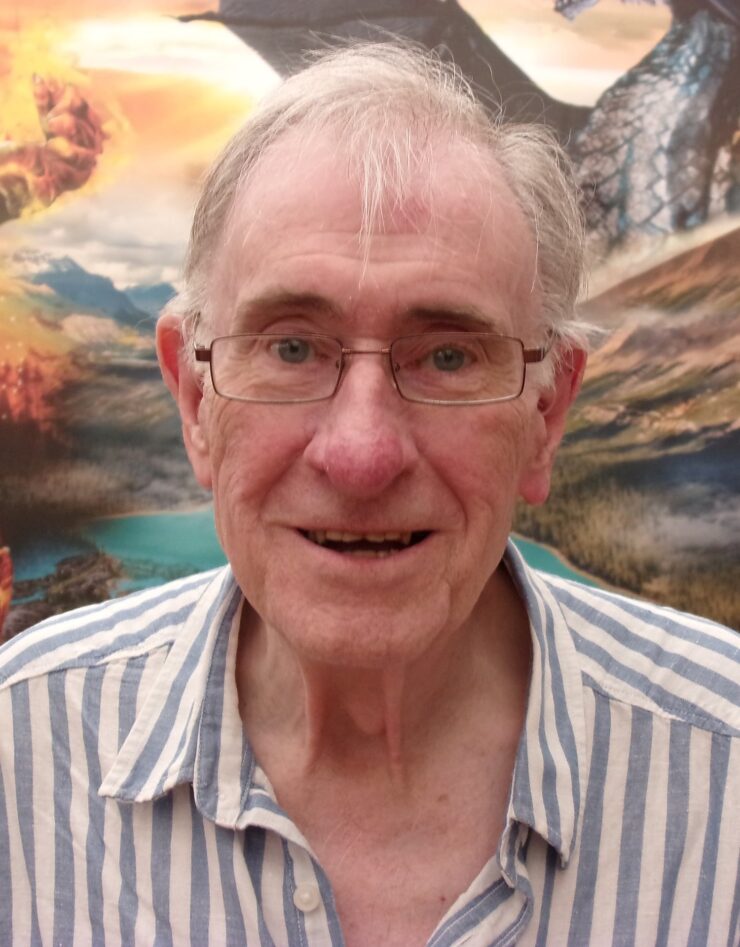It’s possible that you might only know Christopher Priest as the author of The Prestige, which Christopher Nolan adapted into a very appealing movie in 2006. It is the reason so many Priest obits are headed with images that include David Bowie playing Nikola Tesla.
But there was much more to the British author than that. Born in Cheshire, England, in 1943, Priest became a full-time writer in 1968, and was the author of more than 20 novels and dozens of short stories. He was also a journalist, writing regularly in the British press; as his bio notes, he was a “regular obituarist for the Guardian.”
The Guardian, now, has a lovely obituary of Priest himself. As David Clute writes:
His large body of work never fitted easily into any mould. Only in recent years has it become widely understood that the sometimes baffling ingenuity and thrust of his fiction has been of a piece, no more detachable into convenient genres than, say, Amis’s or Ishiguro’s tales of the fantastic.
Clute also notes that in 1983, Priest was one of the authors featured in Granta‘s Best of Young British Novelists, along with the likes of Martin Amis, Ian McEwan, Salman Rushdie, and William Boyd. But he had been working much longer than his peers on this list. “He clearly felt,” Clute writes, “that it was not so much the quality of his work that delayed his ‘promotion’ to the literary establishment, but his reluctance to deny, when asked, that he wrote science fiction.”
Priest’s work was heavily influenced by the work of JG Ballard, who was a mentor to the younger writer. Priest was also a member of the H.G. Wells Society, and wrote an homage to Wells in 1976’s The Space Machine: A Scientific Romance. You might not always find his work in the science fiction and fantasy section of the bookshop, but the fantastical was there: people turn invisible; Britain itself changes; some stories take place in the Dream Archipelago.
The Prestige was not Priest’s only encounter with the world of film. His most recent book, Airside, was published in the UK last year. It follows the story of an actress who disappears, and the film student who, years later, investigates her disappearance. Priest wrote the tie-in novel for David Cronenberg’s eXistenZ, and was brought on (by then-script editor Douglas Adams, no less) to write an episode of Doctor Who that was never produced. (You can read more about that experience in Priest’s interview with David Langford.) He also wrote a book, The Magic: The Story of a Film, about the experience of the adaptation of The Prestige—though he was not at all involved in the creation of the film.
In an interview on Priest’s website, Don Iffergrin asks the author a simple question—Can he do magic?—but Priest’s answer says a lot about his own work:
No, I’m just a novelist. I don’t even know how most tricks are done — it’s all in the performance, because magical secrets are never that complex. At the risk of sounding pretentious, my main interest in stage magic is its metaphorical nature in relation to art. For instance, I’ve always been interested in misdirecting my readers in my novels, and magicians use techniques of misdirection that are similar. This isn’t sleight of hand: real misdirection is when the performer allows or encourages his audience to make assumptions about what they are seeing … or in my case, assumptions about what they are reading.
Over the years, Priest received the World Fantasy Award (The Prestige), the Arthur C. Clarke Award (The Separation), the James Tait Black Memorial Prize (The Prestige), four British Science Fiction Association awards, and France’s Prix Utopia for lifetime achievement, among others. He never won a Hugo, though he was a finalist four times.
Priest is survived by his wife, Nina Allan, and two children.










